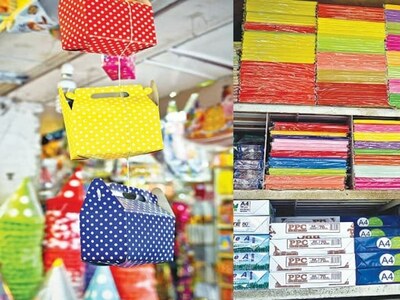PAPGAI and APPMA Voice Concerns Over Budget 2025-26
The Pakistan Association of Printing & Graphic Arts Industry (PAPGAI) and the All Pakistan Paper Merchants Association (APPMA) have jointly expressed profound apprehension regarding what they perceive as inequitable treatment towards a particular company within the recently unveiled Federal Budget 2025–26.
Pakistan’s printing and packaging sector, a substantial contributor to the national economy and a significant source of employment after textiles, strongly objects to the perceived unwarranted assistance being provided to a solitary domestic paper producer through modifications in tariffs.
Details of the Issue
The introduction of a fresh HS Code, specifically 4810.9210 (Aseptic Liquid Food Packaging), which carries a reduced customs duty of 10%, is a notable deviation from the previous 20% duty applied under HS Code 4810.9200 for coated packaging board (multi-ply). This action is viewed as arbitrary and implemented without proper consultation or justification across the industry.
This reclassification and the artificial separation of tariffs, distinguishing HS Code 4810.9210 from 4810.9290, appear to be intentionally crafted to favor a single manufacturer. This move seemingly exempts the manufacturer from existing anti-dumping duties and unfairly provides a competitive edge at the expense of other participants in the sector.
Impact on the Industry
Such advantageous treatment creates imbalances in the market, hinders fair competition, and places undue financial burdens on the broader packaging industry, which relies on coated board materials as essential raw materials. The ramifications include increased costs, diminished investment, and potential job losses throughout the entire supply chain.
Adding to the complexity, the National Tariff Commission is continuing its efforts to impose anti-dumping duties on Coated Bleach Board (HS Code 4810.9290) imported from China. These endeavors, conducted without sufficient consultation and transparency, seem to cater to specific commercial interests rather than promoting broader national economic advancement.
The proposed anti-dumping duty is perceived as a policy instrument designed to protect a single domestic manufacturer, while simultaneously imposing unfair burdens on over 10,000 printing and packaging enterprises across Pakistan. Such actions jeopardize the stability of a crucial industry that underpins both domestic production and export-focused sectors.
Already burdened by a substantial 20% customs duty (CD) and a 4% additional customs duty (ACD) on vital raw materials, the printing and packaging industry, which supports both domestic and export markets, faces further challenges. The imposition of supplementary duties, coupled with inconsistent alternative supply sources, will likely erode competitiveness, adversely affect SMEs, and discourage investment.
This manipulation of tariffs and preferential policy-making directly contravenes Article 25 of Pakistan’s Constitution, which champions the principle of equality under the law. It also undermines the government’s own declared aims of fostering industrial expansion, promoting fair competition, and boosting exports.
Call for Action
PAPGAI and APPMA are urging the Federal Board of Revenue (FBR) and the Ministry of Commerce to promptly review and rectify the tariff structure to ensure uniformity, fairness, and transparency across the board. Their recommendations include:
- Reviewing and rectifying the tariff reclassification to establish a consistent, equitable, and transparent tariff structure that adheres to WTO standards and Pakistan’s international trade commitments.
- Restoring a level playing field by applying duties uniformly to all importers and end-users of coated packaging board.
- Engaging with stakeholders across the industry before implementing structural changes that could impact numerous businesses and livelihoods.
Failure to resolve this issue could further destabilize a critical sector that is essential to Pakistan’s export competitiveness and overall economic stability.



Comments (0)
No comments yet. Be the first to comment!
Leave a Comment